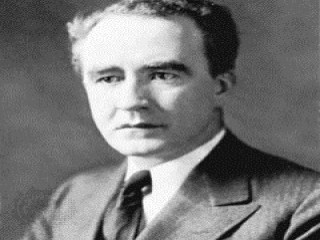
Frank Murphy biography
Date of birth : 1890-04-13
Date of death : 1949-07-19
Birthplace : Harbor Beach, Michigan, U.S.
Nationality : American
Category : Politics
Last modified : 2011-04-27
Credited as : Jurist and diplomat, U.S. attorney general, mayor of Detroit
Frank Murphy, American jurist and diplomat, campaigned against municipal corruption and crime as U.S. attorney general. He was a liberal sympathizer of the Filipino independence movement when he was governor general and high commissioner of the Philippine Islands.
Frank Murphy was born in Harbor Beach, Mich., on April 13, 1890. He developed an enduring hatred against "industrial slavery" as a boy worker in a local starch factory. With his mother's teaching of racial equality and Christian love, Murphy evolved into a dynamic defender of the underprivileged. He worked his way through the University of Michigan. After receiving his law degree in 1914, he worked as a law clerk in Detroit and taught in a night school.
At the outbreak of World War I Murphy enlisted and served in France. After the war he studied law in Trinity College, Dublin, and in Lincoln's Inn, London. He was chief assistant to the U.S. attorney of Eastern Michigan District (1919-1920) and was reputed never to have lost a case. After private practice (1920-1923) he was appointed judge of Recorder's Court in Detroit (1923-1930) and handled criminal cases. He was mayor of Detroit from 1930 to 1933.
In 1932 Murphy was appointed governor general of the Philippines. He demonstrated his generous sympathy for the plight of the Filipino masses, especially for the land-hungry and oppressed tenant farmers, and emphasized the need for social justice. He was high commissioner of the islands in 1935-1936. In an interview in 1947 he expressed his belief that a revolution by the workers and peasants against the prevailing inequality in the Philippines was inevitable and bound to win.
When Murphy became governor of Michigan in 1936, he was faced with a sitdown strike by General Motors workers. The corporation obtained a court order to compel the workers to quit striking, but Murphy refused to enforce it by calling the troops; for this he was severely criticized by the establishment. Although acclaimed by liberals, he lost the support of politicians and workers and was defeated for reelection in 1938. Appointed in 1939 as U.S. attorney general, he waged a relentless crusade against crime syndicates, notably against Thomas Pendergast in Kansas City, and political racketeers. His indictment of 16 alleged Communists and fellow travelers in Detroit for having recruited volunteers for Loyalist Spain earned him the censure of liberals throughout the country.
President Franklin Roosevelt appointed Murphy associate justice of the Supreme Court in 1940 in recognition of his support of the New Deal program. As a member of the five-man liberal majority on the Court, Murphy fought all forms of racketeering and safeguarded the rights of minorities. In April he wrote the decision invalidating antipicket laws and thus won general praise for his firm stand against antistrike measures.
After 15 years of service in the Justice Department, Murphy died in Detroit on July 19, 1949. Quiet in manner, courteous, somewhat ascetic and pious, Murphy followed his motto, "Speak softly and hit hard," in his work. He expressed the ruling principle of his life thus: "I should like to belong to that small company of public servants and others who are content to do some of the homely and modest task of perfecting integrity in government and making government more efficient and orderly."
















